Home Lithium Battery Storage: Is It Right for You?
Are you tired of power outages disrupting your daily routine? Take control of your energy supply with home lithium battery storage!
Are you tired of power outages disrupting your daily routine? Take control of your energy supply with home lithium battery storage!
A 48V LiFePO4 battery is a type of lithium-ion battery that uses lithium iron phosphate as its cathode material and has a nominal voltage of 48V. This type of battery is commonly used in various applications, including solar power storage systems, electric vehicles, and industrial applications. This article aims to provide an overview of the 48V LiFePO4 battery, its advantages, disadvantages, and applications.
(Check: Buy LiFePO4 RV Batteries at B2B Prices from China Manufacturer)
48V LiFePO4 batteries are awesome! They’re compact, last a long time, charge super-fast, and are safe. Energy-efficient too! They store lots of power, last through many charges, and deliver power quickly without getting too hot. Plus, they’re safer than other batteries, less likely to overheat or catch fire. Perfect for all sorts of cool gadgets!
One of the significant advantages of the 48V LiFePO4 battery is its high energy density. This battery can store a large amount of energy in a relatively small space, making it ideal for applications that require a compact and lightweight power source.
LiFePO4 batteries have a long cycle life, which means they can be charged and discharged many times without significant degradation in performance. This makes them ideal for applications that require a durable and reliable power source.
LiFePO4 batteries can be charged quickly compared to other types of lithium-ion batteries. This is because they have a low internal resistance, which means they can accept a high charging current without overheating or damaging the battery.
LiFePO4 batteries can deliver a high discharge rate, which makes them ideal for applications that require a high power output. This is because they have a low internal resistance, which allows them to deliver power quickly without overheating or damaging the battery.
LiFePO4 batteries are considered safer than other types of lithium-ion batteries. This is because they are less prone to thermal runaway, which is a condition where the battery overheats and catches fire. Additionally, LiFePO4 batteries are less likely to explode or release toxic gases in the event of a malfunction.
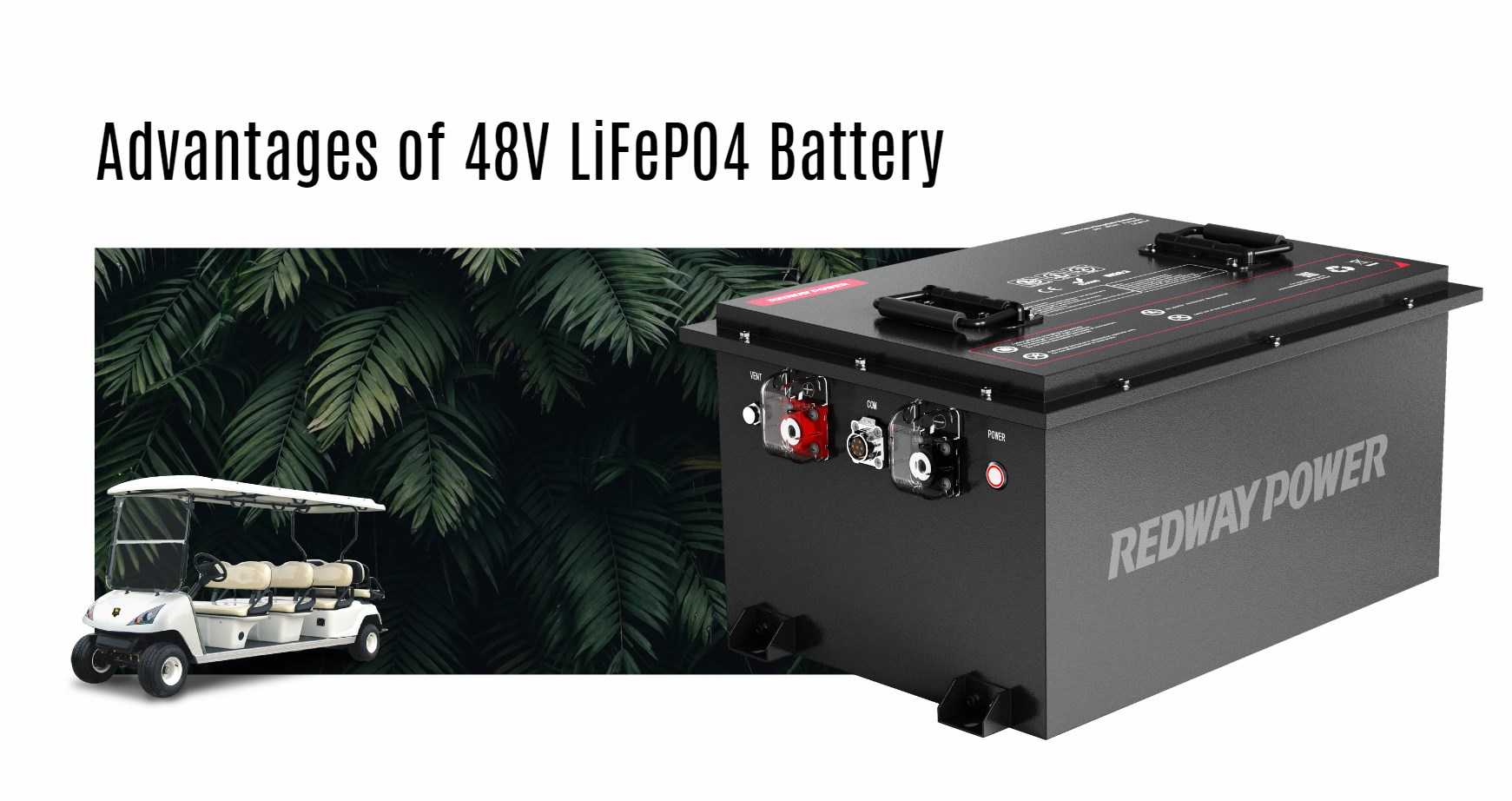
48V LiFePO4 batteries are great but have drawbacks. They’re pricey due to expensive materials and safety needs. Also, they hold less energy than some lithium-ion types, like lithium cobalt oxide or lithium manganese oxide. So, if you need lots of power in a small space, they might not be the best choice.
LiFePO4 batteries are more expensive than other types of lithium-ion batteries. This is because they use a more expensive cathode material (lithium iron phosphate) and require additional safety features to prevent overcharging and overheating.
Although LiFePO4 batteries have a high energy density compared to other types of rechargeable batteries, they have a lower energy density than other types of lithium-ion batteries, such as lithium cobalt oxide (LCO) or lithium manganese oxide (LMO). This means that they may not be suitable for applications that require a high energy density in a small space.
48V LiFePO4 batteries have many uses. They’re great for storing solar power because they last long and handle heat well. Also, they power electric vehicles safely with high output. Plus, they’re handy in industries like forklifts and backup power. So versatile!
LiFePO4 batteries are commonly used in solar power storage systems because they can store a large amount of energy and be charged and discharged many times without significant degradation in performance. Additionally, they are less prone to thermal runaway than other types of lithium-ion batteries, which is important for applications that involve high temperatures.
LiFePO4 batteries are also used in electric vehicles (check RV batteries) because they offer a high power output and long cycle life. Additionally, they are safer than other types of lithium-ion batteries, which is important for applications that involve high-speed driving or crashes.
LiFePO4 batteries are also used in various industrial applications, such as forklifts, backup power systems, and uninterruptible power supplies (UPS). This is because they offer a high power output, long cycle life, and fast charging capabilities.
In conclusion, the 48V LiFePO4 battery is a type of rechargeable lithium-ion battery that offers several advantages, including high energy density, long cycle life, fast charging, high discharge rate, and safety. Redway Battery is the High Quality 48V LiFePO4 Battery Factory in China.
A 12V LiFePO4 battery is a type of rechargeable lithium-ion battery that uses lithium iron phosphate as its cathode material. This battery has a nominal voltage of 12V, which makes it suitable for various applications, including solar power storage systems, electric vehicles, and marine applications. This article aims to provide an overview of the 12V LiFePO4 battery, its advantages, disadvantages, and applications.
One of the significant advantages of the 12V LiFePO4 battery is its high energy density. This battery can store a large amount of energy in a relatively small space, making it ideal for applications that require a compact and lightweight power source.
LiFePO4 batteries have a long cycle life, which means they can be charged and discharged many times without significant degradation in performance. This makes them ideal for applications that require a durable and reliable power source.
LiFePO4 batteries can be charged quickly compared to other types of lithium-ion batteries. This is because they have a low internal resistance, which means they can accept a high charging current without overheating or damaging the battery.
LiFePO4 batteries can deliver a high discharge rate, which makes them ideal for applications that require a high power output. This is because they have a low internal resistance, which allows them to deliver power quickly without overheating or damaging the battery.
LiFePO4 batteries are considered safer than other types of lithium-ion batteries. This is because they are less prone to thermal runaway, which is a condition where the battery overheats and catches fire. Additionally, LiFePO4 batteries are less likely to explode or release toxic gases in the event of a malfunction.
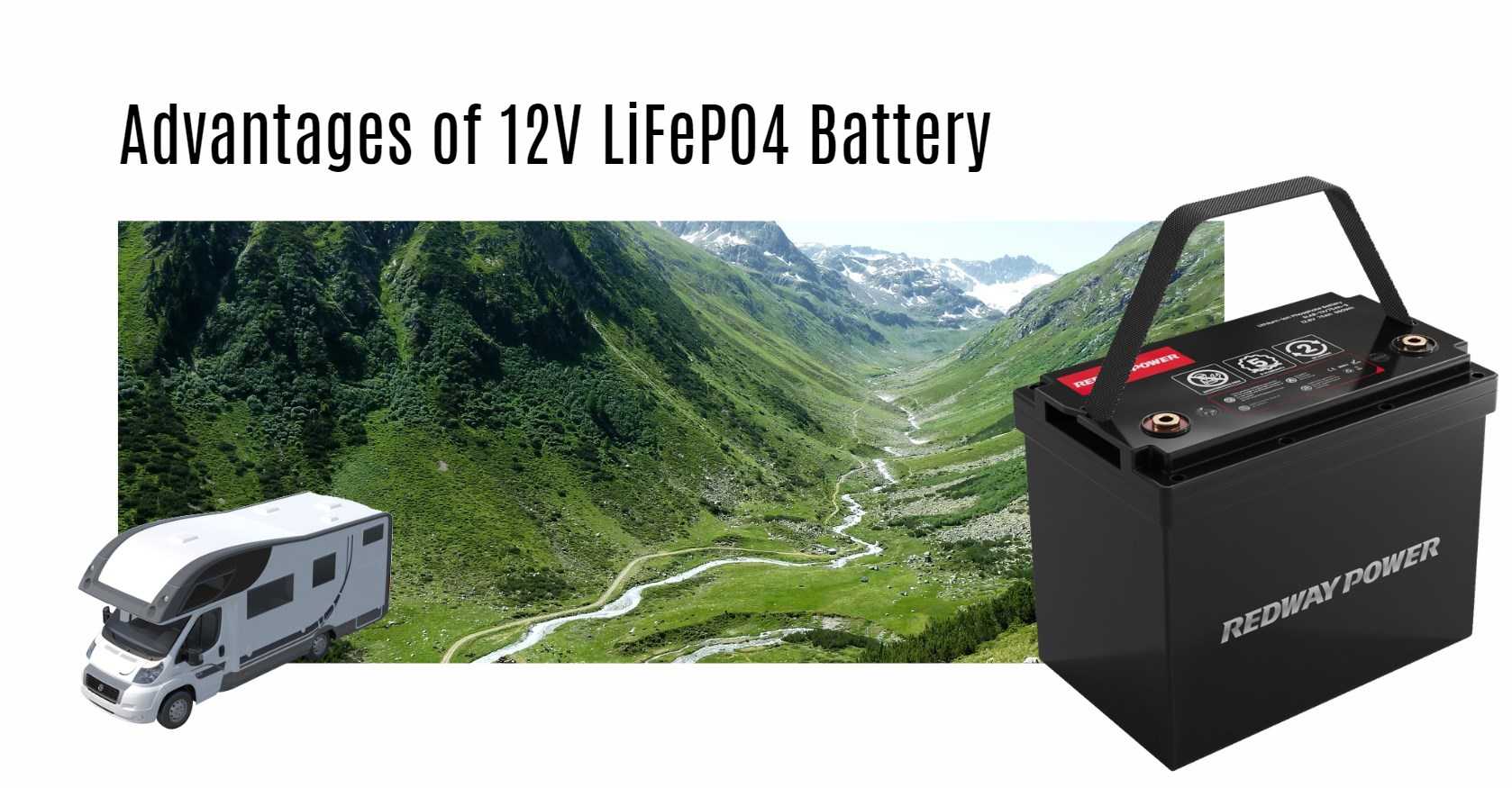
LiFePO4 batteries are more expensive than other types of lithium-ion batteries. This is because they use a more expensive cathode material (lithium iron phosphate) and require additional safety features to prevent overcharging and overheating.
Although LiFePO4 batteries have a high energy density compared to other types of rechargeable batteries, they have a lower energy density than other types of lithium-ion batteries, such as lithium cobalt oxide (LCO) or lithium manganese oxide (LMO). This means that they may not be suitable for applications that require a high energy density in a small space.
LiFePO4 batteries are commonly used in solar power storage systems because they can store a large amount of energy and be charged and discharged many times without significant degradation in performance. Additionally, they are less prone to thermal runaway than other types of lithium-ion batteries, which is important for applications that involve high temperatures.
LiFePO4 batteries are also used in electric vehicles because they offer a high power output and long cycle life. Additionally, they are safer than other types of lithium-ion batteries, which is important for applications that involve high-speed driving or crashes.
LiFePO4 batteries are also used in marine applications because they can deliver a high power output and are less prone to thermal runaway than other types of lithium-ion batteries. Additionally, they are resistant to corrosion, which is important for applications that involve exposure to saltwater.
In summary, the 12V LiFePO4 battery is a type of rechargeable lithium-ion battery that offers several advantages, including high energy density, long cycle life, fast charging, high discharge rate. Redway Battery is the High Quality 12V LiFePO4 Battery Factory in China.
A 24V LiFePO4 battery is a type of rechargeable lithium-ion battery that uses lithium iron phosphate as its cathode material. This battery has a nominal voltage of 24V, which makes it suitable for various applications, including electric vehicles, solar power storage systems, and marine applications. This article aims to provide an overview of the 24V LiFePO4 battery, its advantages, disadvantages, and applications.
One of the significant advantages of the 24V LiFePO4 battery is its high energy density. This battery can store a large amount of energy in a relatively small space, making it ideal for applications that require a compact and lightweight power source.
LiFePO4 batteries have a long cycle life, which means they can be charged and discharged many times without significant degradation in performance. This makes them ideal for applications that require a durable and reliable power source.
LiFePO4 batteries can be charged quickly compared to other types of lithium-ion batteries. This is because they have a low internal resistance, which means they can accept a high charging current without overheating or damaging the battery.
LiFePO4 batteries can deliver a high discharge rate, which makes them ideal for applications that require a high power output. This is because they have a low internal resistance, which allows them to deliver power quickly without overheating or damaging the battery.
LiFePO4 batteries are considered safer than other types of lithium-ion batteries. This is because they are less prone to thermal runaway, which is a condition where the battery overheats and catches fire. Additionally, LiFePO4 batteries are less likely to explode or release toxic gases in the event of a malfunction.
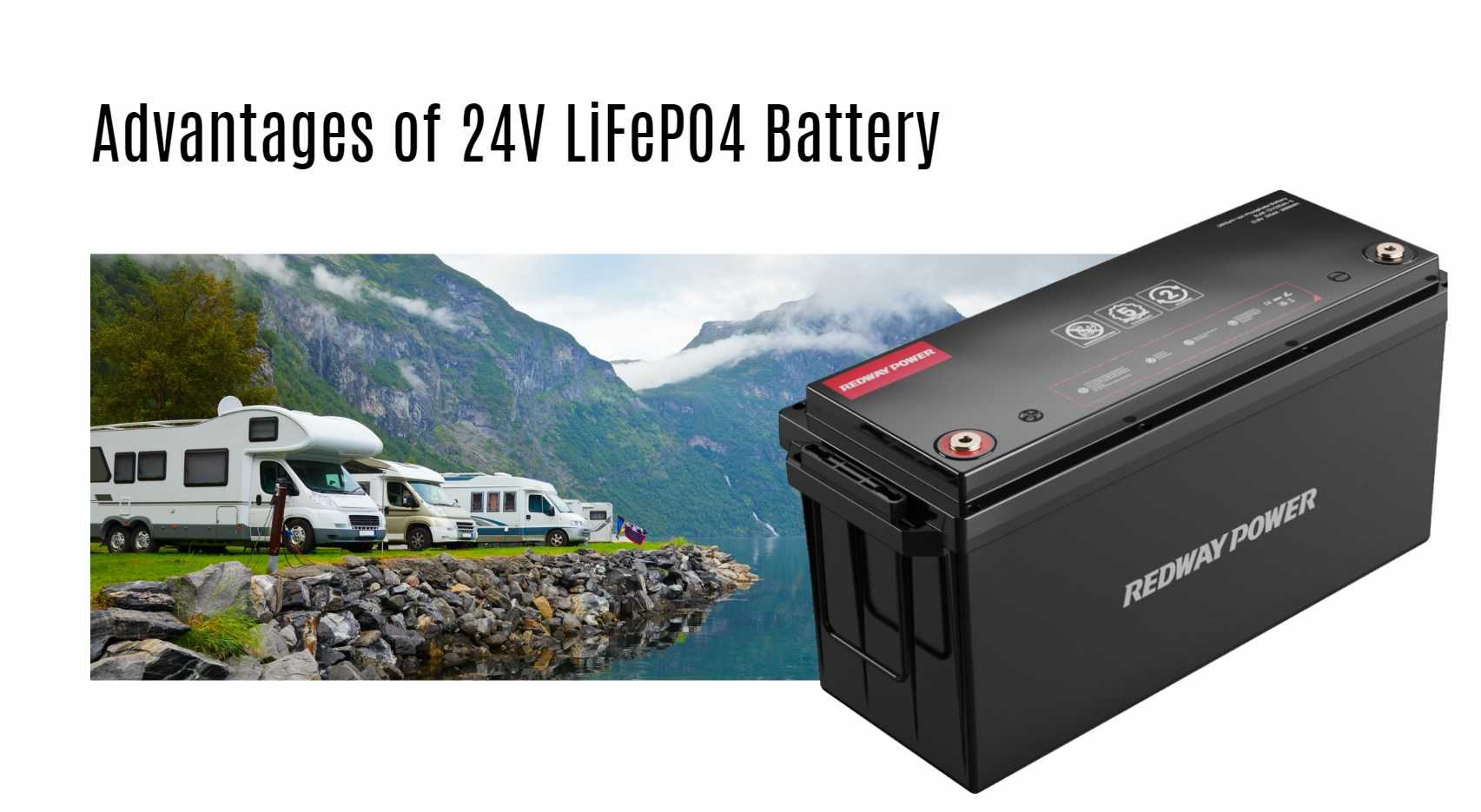
LiFePO4 batteries are more expensive than other types of lithium-ion batteries. This is because they use a more expensive cathode material (lithium iron phosphate) and require additional safety features to prevent overcharging and overheating.
Although LiFePO4 batteries have a high energy density compared to other types of rechargeable batteries, they have a lower energy density than other types of lithium-ion batteries, such as lithium cobalt oxide (LCO) or lithium manganese oxide (LMO). This means that they may not be suitable for applications that require a high energy density in a small space.
LiFePO4 batteries are commonly used in electric vehicles because they offer a high power output and long cycle life. Additionally, they are safer than other types of lithium-ion batteries, which is important for applications that involve high-speed driving or crashes.
LiFePO4 batteries are also used in solar power storage systems because they can store a large amount of energy and be charged and discharged many times without significant degradation in performance. Additionally, they are less prone to thermal runaway than other types of lithium-ion batteries, which is important for applications that involve high temperatures.
LiFePO4 batteries are also used in marine applications because they can deliver a high power output and are less prone to thermal runaway than other types of lithium-ion batteries. Additionally, they are resistant to corrosion, which is important for applications that involve exposure to saltwater.
In summary, the 24V LiFePO4 battery is a type of rechargeable lithium-ion battery that offers several advantages, including high energy density, long cycle life, fast charging, high discharge rate. Redway Battery is the High Quality 24V LiFePO4 Battery Factory in China.
The world is constantly evolving with new technological innovations, and the energy storage industry is not left out. Lithium iron phosphate (LiFePO4) batteries are among the newest developments in energy storage, and they are quickly becoming the preferred choice for many applications. Among the various LiFePO4 batteries, the 36V series LiFePO4 battery is gaining increasing popularity due to its unique features, durability, and performance. In this article, we will delve into the details of the 36V series LiFePO4 battery, exploring its composition, applications, advantages, and limitations.
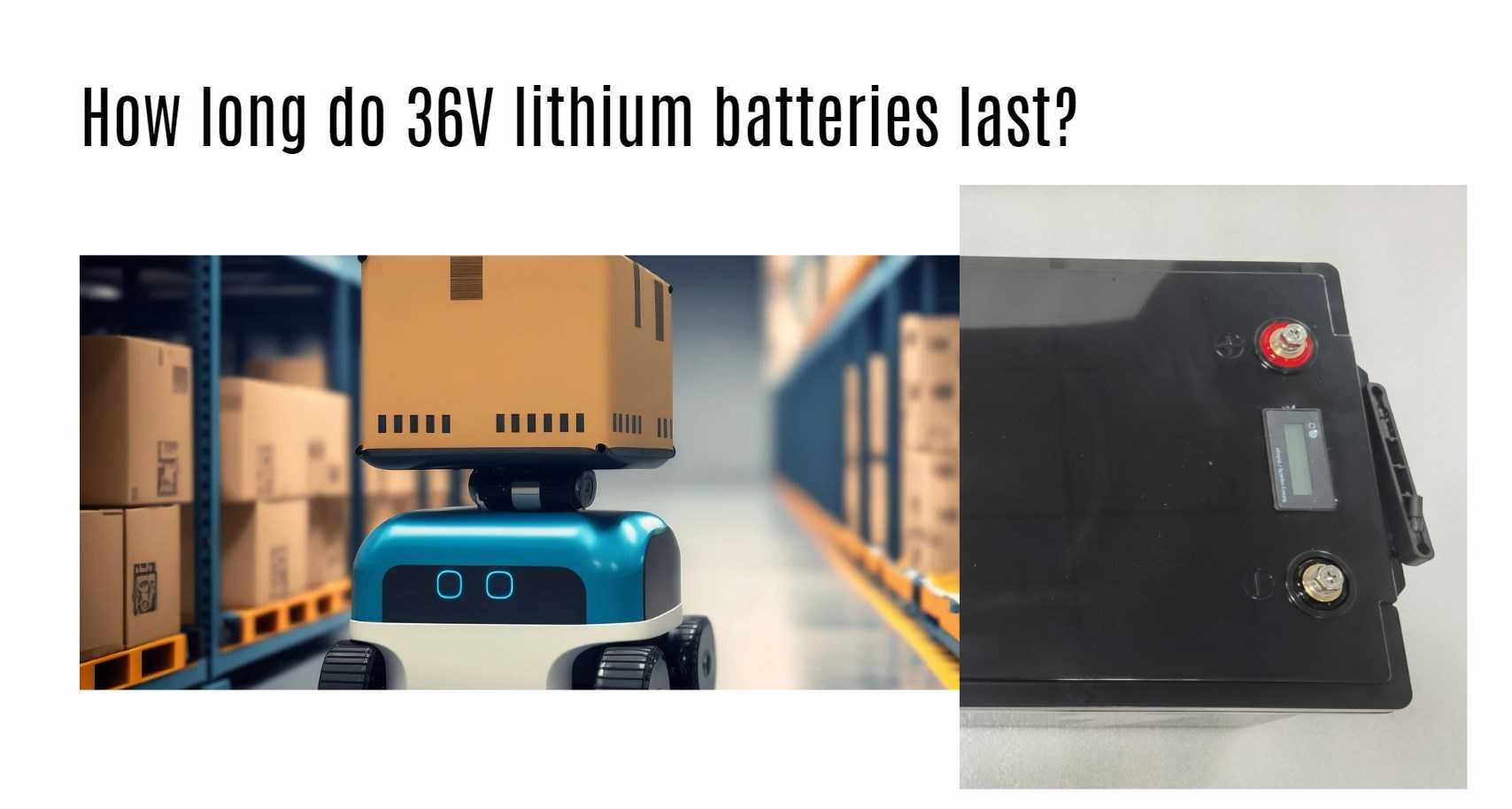
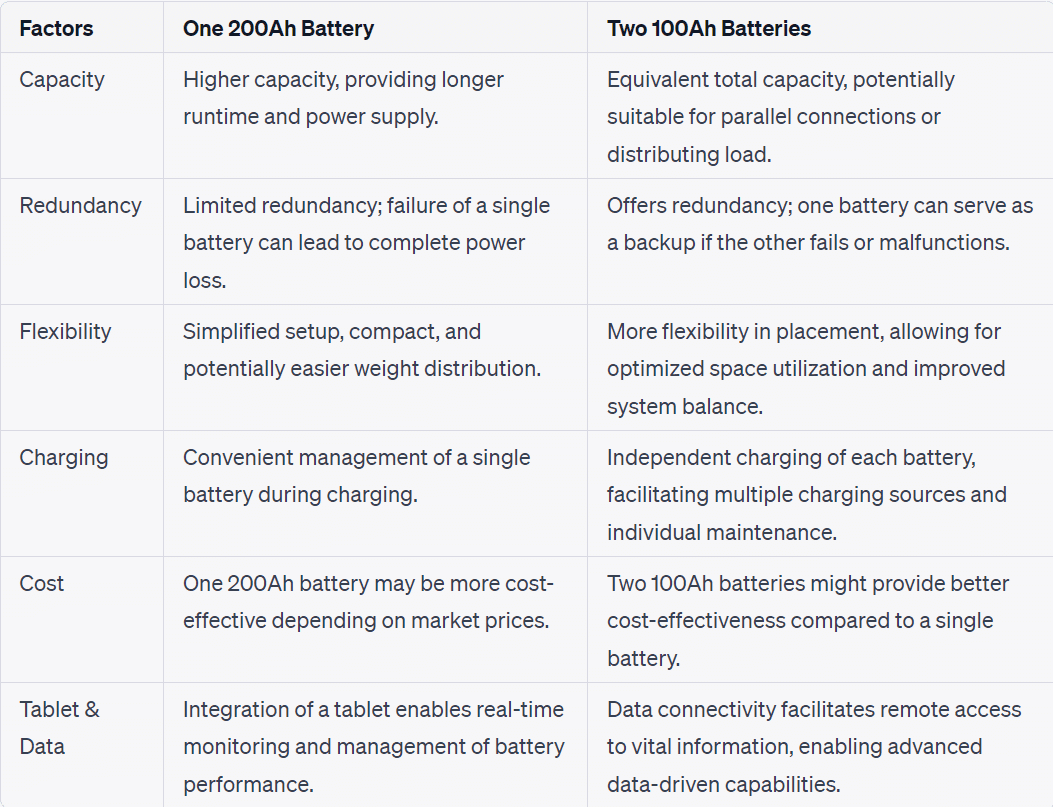
By considering these factors and integrating a tablet for monitoring and data connectivity, you can create a more sophisticated and enriched power management system, allowing for efficient control, enhanced user experience, and informed decision-making.
Overall, 36V LiFePO4 batteries are a versatile and reliable power source that can be used in a wide range of applications. With their safety features, longer lifespan, efficient power delivery, high energy density, and environmentally friendly composition, LiFePO4 batteries are a great choice for anyone looking for a high-quality battery that can deliver reliable power for years to come. If you’re in the market for a new battery for your electric vehicle or other application, consider a 36V LiFePO4 battery – you won’t be disappointed. Redway Battery is the High Quality 36V LiFePO4 Battery Factory in China.
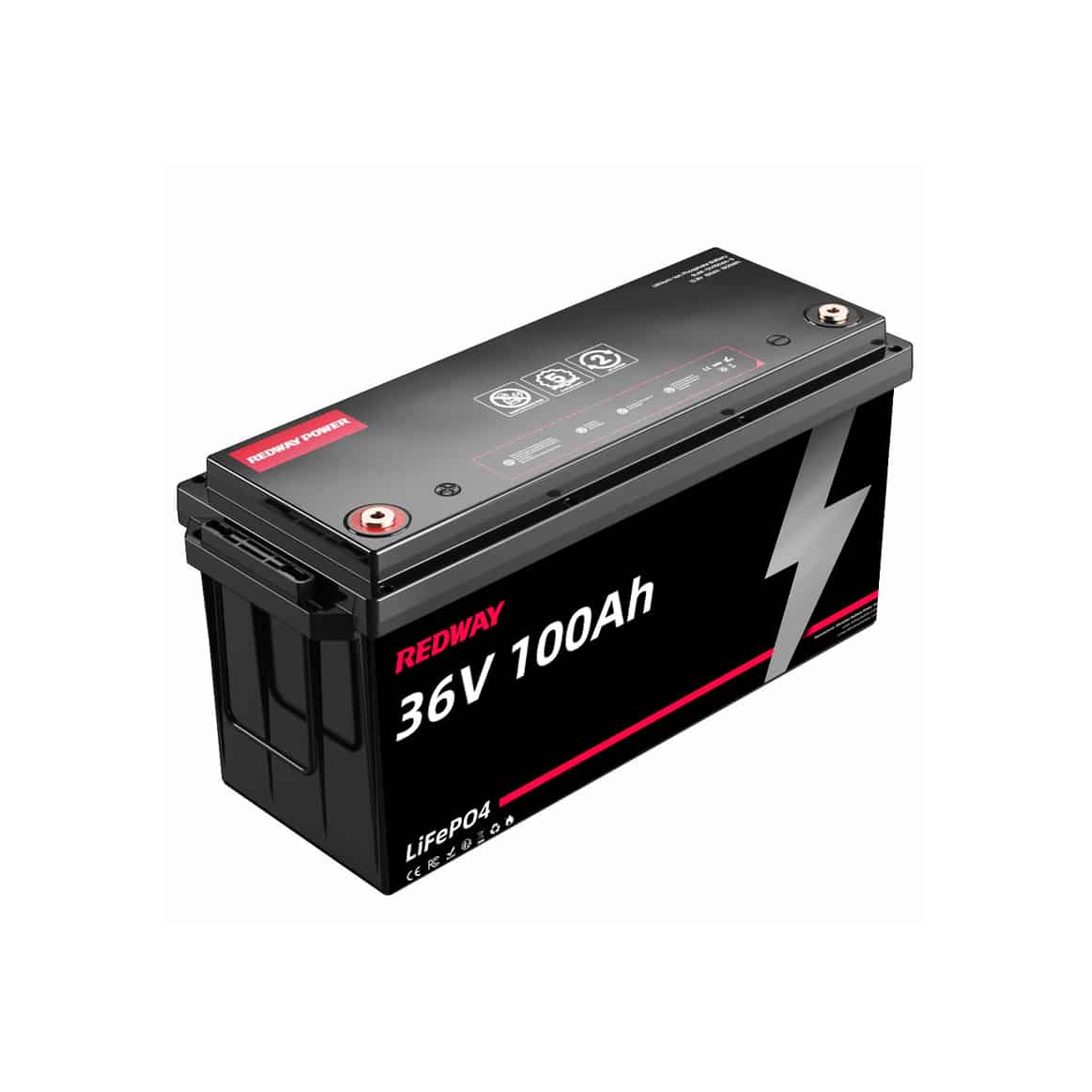
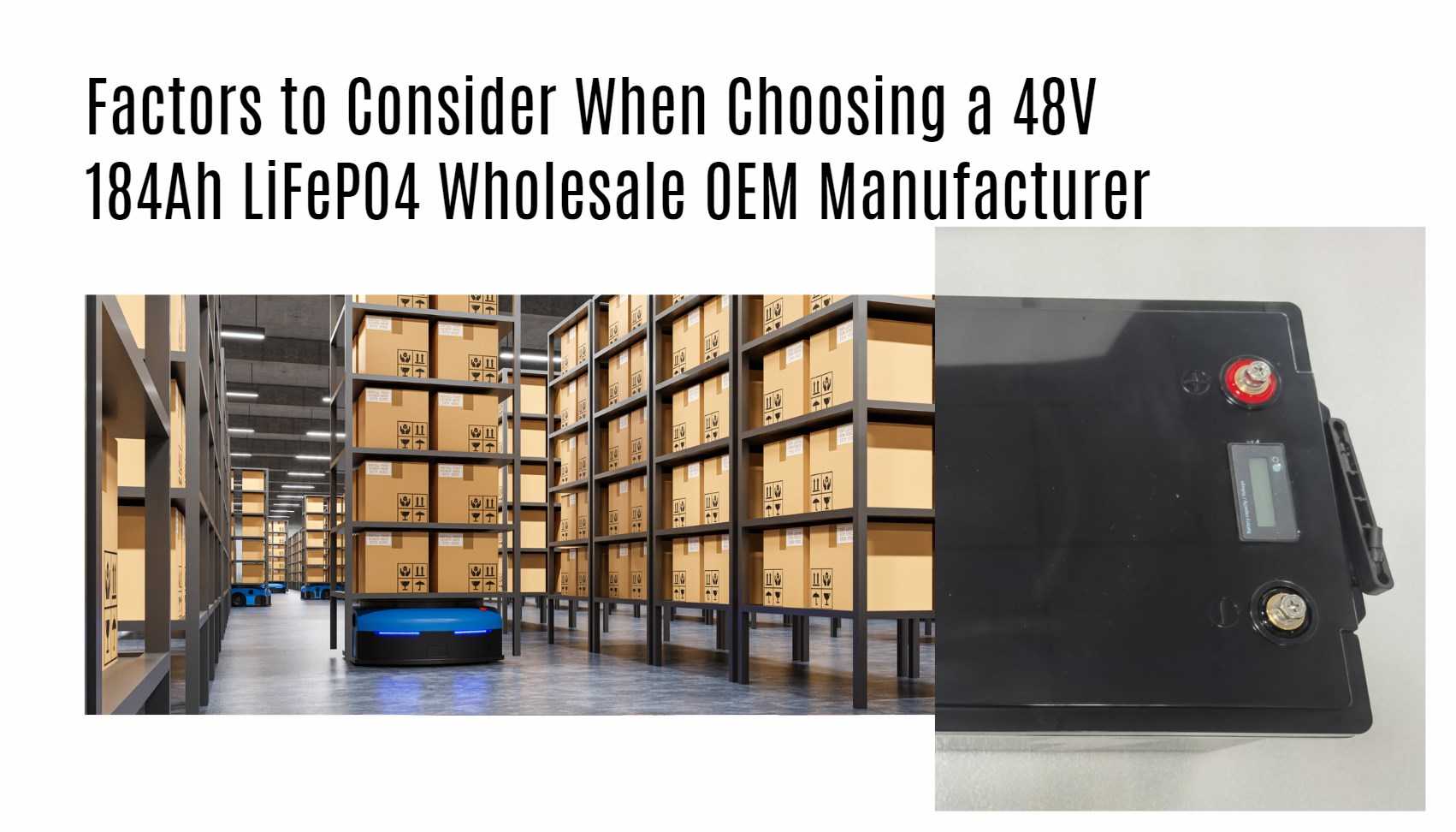
When evaluating quality and certifications of a potential 48V 184Ah LiFePO4 wholesale OEM manufacturer, it’s crucial to dig deep into their credentials. Look for manufacturers that adhere to industry standards and have relevant certifications like ISO certifications or CE markings.
Quality control processes are essential in ensuring the reliability of the batteries they produce. Check if the manufacturer conducts rigorous testing procedures on their products to guarantee performance and safety.
Additionally, examining the materials used in manufacturing can give you insights into the durability and longevity of the batteries. Opt for manufacturers that use high-quality components to ensure a superior end product.
Don’t overlook customer feedback when assessing quality. Reading reviews and testimonials can provide valuable information on past experiences with a manufacturer, helping you make an informed decision.
When looking for a reliable 48V 184Ah LiFePO4 wholesale OEM manufacturer, comparing prices and services is crucial. It’s important to strike a balance between cost-effectiveness and quality to ensure you’re getting the best value for your investment.
Take the time to research different manufacturers and request quotes from each of them. Compare not only the initial price but also any additional fees or charges that may come up during the manufacturing process.
Consider what services each manufacturer offers along with their pricing. Do they provide customization options? How about warranty coverage or after-sales support? These factors can make a significant difference in your overall experience working with them.
Remember, the cheapest option isn’t always the best choice. Look for a manufacturer that offers competitive pricing without compromising on quality or customer service. By carefully evaluating prices and services, you can make an informed decision that meets your needs and budget requirements.
When looking for a reliable 48V 184Ah LiFePO4 wholesale OEM manufacturer, reading customer reviews and testimonials can provide valuable insights into the company’s reputation.
Checking what previous clients have to say about their experience with the manufacturer can give you a better understanding of the quality of products and services they offer.
Positive reviews highlighting exceptional customer service, product reliability, and timely delivery are indicators of a trustworthy manufacturer. On the other hand, negative feedback regarding poor product quality or communication issues should raise red flags.
Take the time to read through multiple reviews from different sources to get a well-rounded perspective before making your decision. Your fellow customers’ experiences can help guide you towards choosing a manufacturer that meets your expectations.
After carefully researching potential manufacturers, evaluating quality and certifications, as well as comparing prices and services, it’s time to finalize your decision and make an order. Take a moment to review all the information you have gathered about each manufacturer. Consider their track record, reputation in the industry, and customer reviews.
Reach out to the top contenders with any final questions or concerns you may have. Clarify delivery timelines, payment terms, and any customization options available for your specific needs. Once you feel confident in your choice, proceed to place your order with the selected 48V 184Ah LiFePO4 wholesale OEM manufacturer.
Double-check all details of the order before confirming to ensure accuracy. Make sure you understand the terms of the agreement and are comfortable moving forward with this partnership. By finalizing your decision thoughtfully and confidently making an order, you set yourself up for success in working with a reliable battery manufacturer who meets your business requirements seamlessly.
Working with a reliable manufacturer for your 48V 184Ah LiFePO4 batteries can bring numerous benefits to your business. You can be assured of consistent quality and performance in every battery you purchase. This reliability translates into customer satisfaction and loyalty as they trust the products you offer.
A reputable manufacturer will also provide excellent customer service, assisting you with any inquiries or issues promptly and efficiently. Additionally, working with a trusted OEM supplier can lead to long-term cost savings through competitive pricing and value-added services.
Furthermore, collaborating with a reliable manufacturer can enhance your brand reputation by association with high-quality products. This positive image can attract more customers and drive growth for your business in the competitive market landscape.
Partnering with a dependable OEM manufacturer not only ensures product quality but also contributes to overall business success and sustainability.
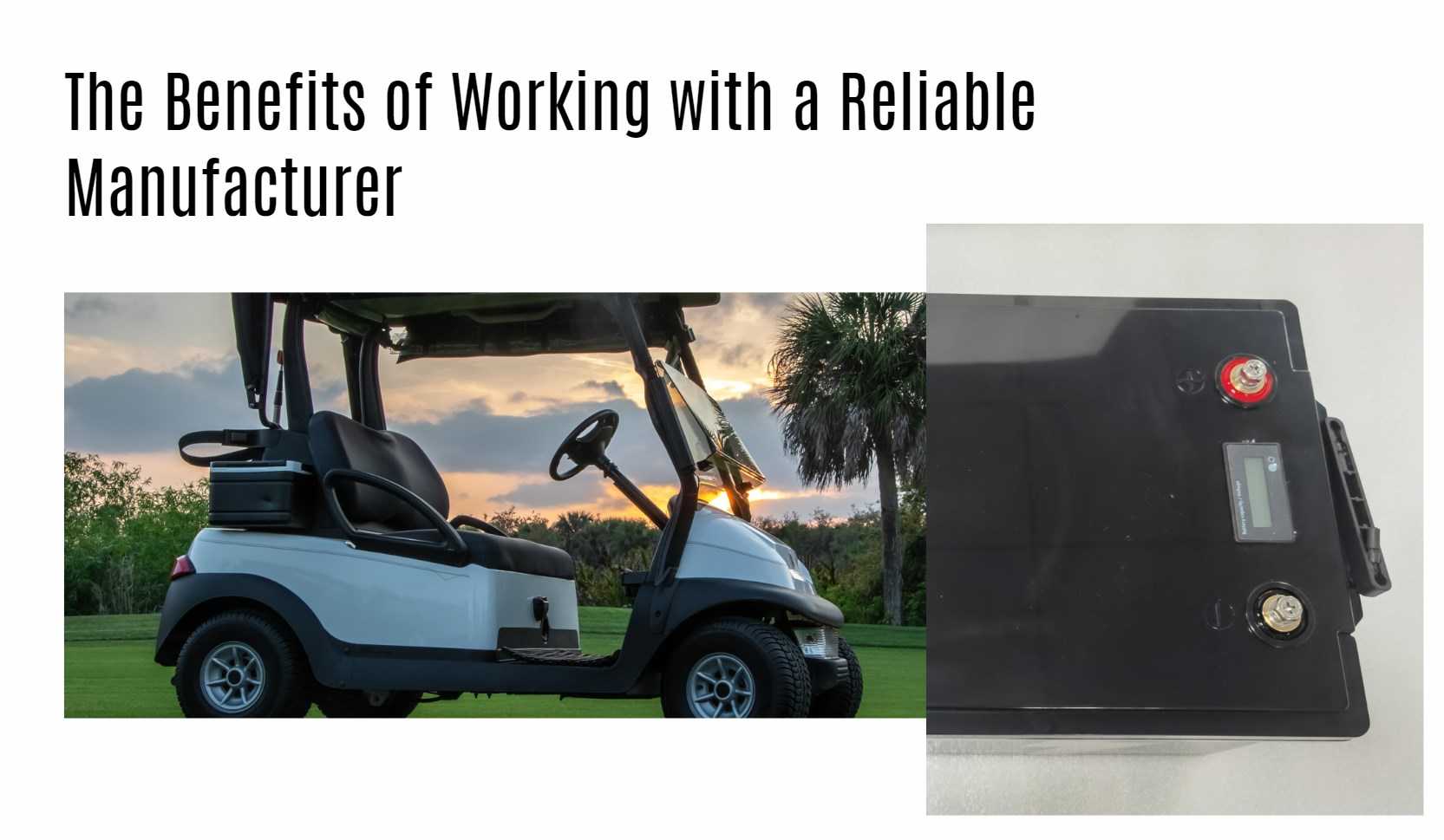
Choosing a reliable 48V 184Ah LiFePO4 wholesale OEM manufacturer is crucial for the success of your business. By understanding the importance of quality, conducting thorough research, evaluating certifications, comparing prices and services, and reading customer reviews, you can make an informed decision.
Working with a reputable manufacturer not only ensures the quality and reliability of your products but also provides you with peace of mind knowing that you are partnering with a trusted supplier. The benefits of collaborating with a reliable manufacturer extend beyond just the initial purchase – it fosters a long-term partnership built on trust and mutual success.
So, when looking for a 48V 184Ah LiFePO4 wholesale OEM manufacturer, take your time to find one that aligns with your needs and values. Investing in a trustworthy partner will ultimately lead to better outcomes for your business in the long run.
When it comes to finding a reliable 36V 60Ah LiFePO4 OEM manufacturer factory, conducting thorough research is key. Start by exploring online reviews and feedback from other businesses who have worked with potential manufacturers. Look for consistent positive comments regarding product quality, customer service, and timely delivery.
Additionally, don’t hesitate to reach out to industry contacts or attend trade shows to gather more information about different manufacturers. Directly contacting the manufacturer and asking specific questions about their production process, materials used, and quality control measures can also give you valuable insights into their reliability.
It’s important to consider not only the manufacturer’s reputation but also their experience in producing LiFePO4 batteries specifically. A manufacturer with a proven track record of success in this niche is more likely to provide you with high-quality products that meet your business needs.
By taking the time to thoroughly research and review potential OEM manufacturers, you can ensure that you partner with a reliable supplier who will help drive the success of your business forward.
When it comes to choosing an OEM manufacturer for your 36V 60Ah LiFePO4 batteries, quality control and certifications play a crucial role.
A reliable manufacturer will have stringent quality control measures in place throughout the production process to ensure that each battery meets high standards of performance and safety.
Look for manufacturers who hold relevant certifications such as ISO 9001 or IATF 16949, as these indicate adherence to international quality management systems.
Certifications like UN38.3 for transportation safety and CE marking for compliance with European regulations are also important considerations when selecting a manufacturer.
By partnering with a manufacturer that prioritizes quality control and holds necessary certifications, you can be confident in the reliability and durability of the batteries you source for your business.
When it comes to sourcing 36V 60Ah LiFePO4 batteries from an OEM manufacturer, cost and pricing play a crucial role in the decision-making process for businesses. Finding affordable options is key to maximizing profit margins while maintaining quality standards.
It’s important to consider not just the initial cost of the batteries but also factors like shipping fees, minimum order quantities, and any additional customization or services offered by the manufacturer. Look for transparent pricing structures that clearly outline all associated costs upfront.
While affordability is essential, be cautious of manufacturers offering prices that seem too good to be true. Quality should never be compromised for the sake of saving a few dollars. It’s worth investing in a reputable manufacturer that prioritizes product quality and reliability.
By conducting thorough research and comparing quotes from different OEM manufacturers, you can identify cost-effective solutions that meet your business needs without sacrificing on quality.
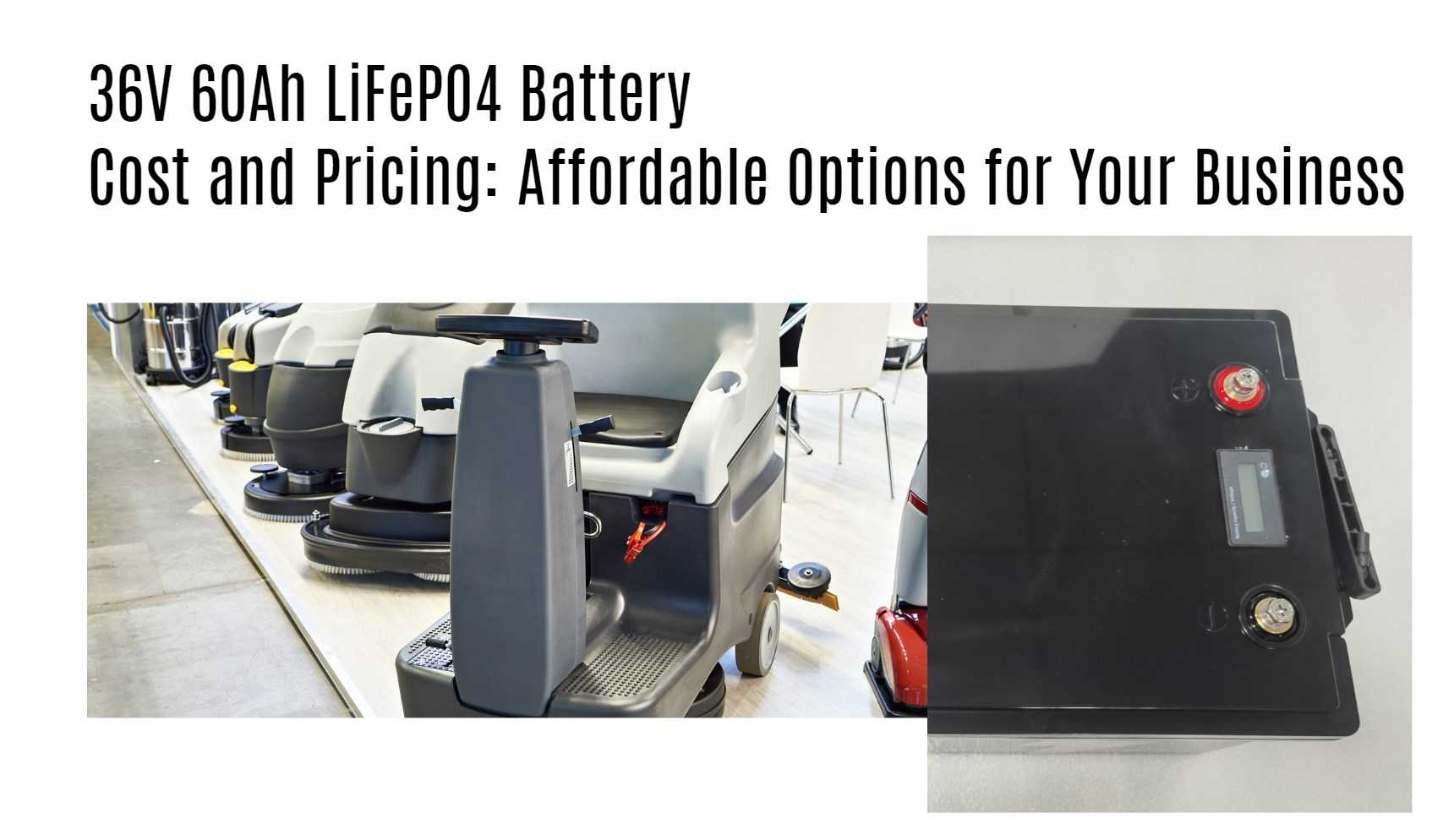
Partnering with a reliable OEM manufacturer for your 36V 60Ah LiFePO4 batteries is crucial for the success of your business. By choosing a manufacturer that meets all your requirements in terms of quality, reliability, cost-effectiveness, and certifications, you can ensure that you receive top-notch products that will meet the needs of your customers. Building a strong partnership with a trusted OEM manufacturer will not only help you streamline your supply chain but also enhance the overall efficiency and profitability of your business. So, take the time to research and find the right OEM manufacturer that aligns with your goals and values for long-term success in the battery industry.
When sourcing a reliable 36V 105Ah LiFePO4 wholesale OEM manufacturer, it’s crucial to consider their shipping and distribution processes. Look for a manufacturer that offers efficient and cost-effective shipping options to ensure timely delivery of your batteries.
Consider the manufacturer’s ability to handle bulk orders and international shipments if needed. Clear communication on shipping timelines and tracking information is essential for smooth logistics operations.
Evaluate the packaging methods used by the manufacturer to protect the batteries during transit. Proper packaging reduces the risk of damage and ensures that you receive your products in optimal condition.
Check if the manufacturer has partnerships with reputable carriers or logistics companies to guarantee reliable transportation services. A well-established network can help streamline the shipping process and minimize delays.
By taking these considerations into account, you can select a manufacturer that not only produces high-quality LiFePO4 batteries but also excels in efficient shipping and distribution practices.
When it comes to choosing a reliable 36V 105Ah LiFePO4 wholesale OEM manufacturer, quality control and certifications play a crucial role. Ensuring that the batteries meet high-quality standards is essential for performance and safety.
Quality control measures implemented by the manufacturer can help identify any potential issues early on in the production process. This helps in maintaining consistency and reliability across all batches of batteries produced.
Certifications such as ISO, CE, UL, and RoHS demonstrate that the manufacturer complies with industry standards and regulations. These certifications add credibility to the manufacturer’s products and processes.
By partnering with a manufacturer that prioritizes quality control and holds relevant certifications, you can have peace of mind knowing that you are investing in top-notch LiFePO4 batteries for your needs.
When searching for a reliable 36V 105Ah LiFePO4 wholesale OEM manufacturer, it is crucial to consider various factors such as quality control, certifications, shipping and distribution capabilities, and customer reviews. By conducting thorough research and due diligence, you can ensure that you partner with a manufacturer that meets your specific needs and requirements.
Remember to prioritize quality and reliability when making your decision. A reputable manufacturer will not only provide you with high-quality products but also offer excellent customer support and service. Take the time to evaluate different manufacturers before making a final decision to guarantee a successful partnership in the long run.
Finding the right manufacturer may take some effort, but the benefits of working with a trusted partner will far outweigh any initial challenges. With careful consideration and attention to detail, you can find a reliable 36V 105Ah LiFePO4 wholesale OEM manufacturer that will help meet your business goals and objectives effectively.

Get ready to power up your life with the latest breakthrough in energy technology – the 20kW Lithium Battery! This ultimate guide will show you how to unleash the full potential of this incredible innovation and revolutionize the way you live, work, and play. Are you ready for the energy revolution? Let’s dive in!
Looking for a way to make the most of your solar power? A deep cycle LiFePO4 battery could be just what you need! Not only is it efficient and sustainable, but it also packs a punch in terms of power output. So why wait? Start maximizing your solar power today!
 Shenzhen Redway Power, IncTel: +86 189 7608 1534Tel: +86 (755) 2801 0506 E-mail: [email protected] Website: www.redway-tech.com Youtube: @RedwayPower TikTok: @redwaybattery Get a Quick Quote |
Hot OEMForklift Lithium BatteryGolf Cart Lithium Battery RV Lithium Battery Rack-mounted Lithium Battery |
Hot Batteries24V 150Ah Forklift Lithium Battery24V 200Ah Forklift Lithium Battery 48V 400Ah Forklift Lithium Battery 48V 600Ah Forklift Lithium Battery 80V 400Ah Forklift Lithium Battery 36V 100Ah Golf Cart Lithium Battery 48V 100Ah Golf Cart Lithium Battery 51.2V 50Ah 3U Rack-mounted Lithium Battery 51.2V 100Ah 3U Rack-mounted Lithium Battery 12V 100Ah RV LiFePO4 Lithium Battery (Self-heating) |
Hot BlogGolf CartsServer Rack Battery Knowledge |
